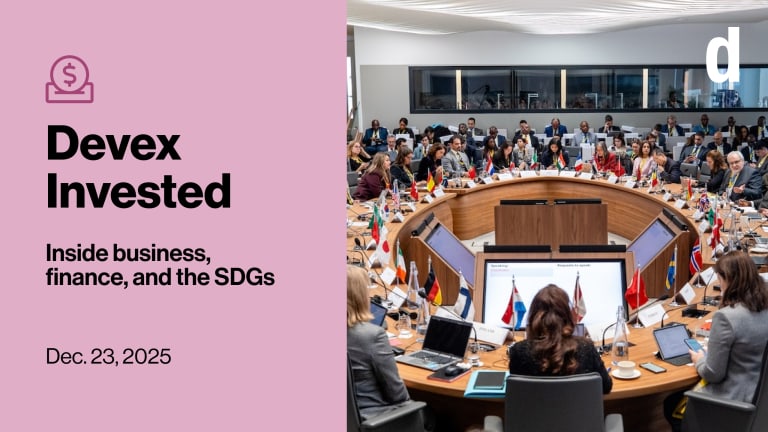
An evaluation, though an excellent source of information on what works and what doesn’t, can also be at odds with innovation.
Because innovation brings with it change and risks, some organizations may choose to follow “best practices” or foolproof methods. And if evaluators support these, then the message is not to innovate.
“You need to have evaluation with the mindset that says ‘we don't want to reward failure — that's not the point — but risk-taking is a good thing,’" Vinod Thomas, director-general of the Independent Evaluation Department at the Asian Development Bank, told Devex.
So how can evaluation promote innovation?
The evaluation department should create standards to measure whether projects are innovative and be more vigilant about the need for institutions to carry out effective self-evaluation, said Joseph Eichenberger, chief evaluator at the European Bank for Reconstruction and Development, during a panel discussion at the Sept. 9 event on innovation and learning at ADB’s Manila headquarters.
The degree at which evaluators can influence operations, though, depends on the support it gets from the institution’s leadership.
“If indeed innovation is supposed to be an integral part of how we are going to be moving forward as development institutions, the principal role of defining that comes from the management, and evaluation can then come in and support and help move things forward,” according to panelist Rakesh Nangia, evaluator-general at the African Development Bank.
Nangia provided the example of the International Fund for Agricultural Development, which has a strategy to promote innovation in its projects.
The evaluators at IFAD assess every project for innovation and have done three corporate-level evaluations on it in the past decade, Ashwani Muthoo, deputy director of the IFAD Independent Office of Evaluation, shared during the panel’s Q&A session. One of the corporate-level evaluations is among the actions IFAD has committed to undertake as part of the replenishment process expected to culminate next month.
On top of that, Muthoo’s team, he said, has looked at the enabling environment for innovation, including the culture, human resource policies as well as the project life cycle and related processes at the U.N. agency.
“I think the support of the governing body is essential for an organization to build innovation,” Muthoo said, adding that the governing body has included promoting innovation and scaling up as a performance indicator of IFAD projects.
You can help shape our coverage on global development innovations. If you’d like to contribute an idea, please email news@devex.com or tweet me @DevexElizaJV using #innov8aid.








